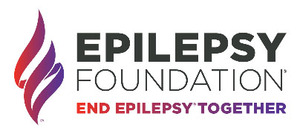Epilepsy Foundation Awards $300,000 in Grants to Support the Commercialization of Two Novel Approaches for the Treatment of Epilepsy
LANDOVER, Md., Jan. 22, 2018 /PRNewswire/ -- The Epilepsy Foundation today announced it has awarded New Therapy Commercialization Grants totaling $300,000 to leading scientists with the goal of accelerating the development of therapies for those living with poorly controlled seizures. One grant was awarded to Matthew Gentry, PhD, professor at the University of Kentucky and the other to Greg Worrell MD, PhD, professor of neurology and chair of clinical neurophysiology at Mayo Clinic. Each of the awardees applied in partnership with a commercial entity which will match the grant funding. Both applications underwent a rigorous scientific advisory and a business review process and were selected among nine applicants. The grants were based on potential for impact and value to patients, likelihood of successful development — including regulatory approval — and the development timeframe.
"Every day, millions of people across the world lose seconds, minutes or hours of their lives to seizures and these precious moments can never be regained," said Sonya Dumanis, PhD, senior director of innovation at the Epilepsy Foundation. "Depending on the type of epilepsy, seizures can often change lives and result in the loss of friends, jobs, mobility, and even the ability to function. Seizures can also increase the risk of death. That's why our New Therapy Commercialization Grants Program funds research that has the potential to discover new treatment options, and ultimately cures. Our focus is to encourage innovation and foster entrepreneurship in order to get new therapies to market faster for people living with epilepsy."
The grants are part of the Foundation's Epilepsy Therapy Project, a research program that seeks to advance innovative ideas in epilepsy, seizure treatment, and care in a timeframe that matters. Dr. Gentry was awarded $150,000 to support pre-clinical testing of a compound (VAL-1221) that has the potential to treat Lafora disease, a progressive epilepsy. Lafora disease is a rare and fatal epilepsy that starts in childhood and is caused by genetic abnormalities in the brain's ability to process glycogen. Dr. Gentry partnered with Valerion Therapeutics to develop VAL-1221, which is currently in clinical trials for another glycogen storage disease called Pompe disease. Preliminary evidence suggests that VAL-1221 can degrade the aberrant glycogen accumulations found in the cells of those diagnosed with Lafora epilepsy.
Dr. Worrell was awarded $150,000 to advance his work with Cadence Neuroscience which has developed a protocol that tests a variety of electrical stimulation parameters while an individual with intractable epilepsy is undergoing phase II evaluation for surgery. Preliminary evidence suggests that this procedure can be used to tailor brain stimulation therapy to each individual and enhance seizure control compared to currently used protocols. Funds from this award will be used to develop a user-friendly workstation to allow other clinicians to personalize and optimize brain stimulation therapies for epilepsy.
Since 2006, the Foundation's Epilepsy Therapy Project has invested more than $8.3 million in 90 different initiatives and supported more than 40 percent of the products being developed for epilepsy in the clinical pipeline over the past decade. In 2007, the Epilepsy Foundation awarded a grant to UCLA School of Medicine to support a clinical trial for trigeminal nerve stimulation in those with poorly controlled epilepsy. The trial led to the development of the Monarch eTNS (Trigeminal Nerve Stimulation) System, which received approval in Europe in 2015 to treat depression and epilepsy. In 2013, Dr. Orrin Devinsky at New York University received a Foundation grant to support the early proof of concept open-label trial to test the safety of Epidiolex® in two severe epilepsies known as Lennox-Gastaut and Dravet syndromes. These trials helped pave the way for the development and commercialization of Epidiolex, which was approved by the U.S. Food & Drug Administration in 2018 to treat seizures associated with Lennox-Gastaut and Dravet syndromes in patients two years of age or older.
To apply for the next cycle of the New Therapy Commercialization Grant and Epilepsy Seal of Innovation Award, please visit epilepsy.com/researchgrants. Deadline for letters of intent are due on January 28, 2019.
About Epilepsy
According to the World Health Organization, epilepsy is the most common serious brain disorder worldwide with no age, racial, social class, national or geographic boundaries. The U.S. Centers for Disease Control & Prevention (CDC) estimates that 3.4 million people in the United States are affected by epilepsy. It is the underlying tendency of the brain to produce seizures which are sudden abnormal bursts of electrical energy that disrupt brain functions.
About the Epilepsy Foundation
With a network of nearly 50 partners throughout the United States, the Foundation connects people to treatment, support and resources; leads advocacy efforts; funds innovative research and the training of specialists; and educates the public about epilepsy and seizure first aid. For more than five decades, the Epilepsy Foundation has shone a light on epilepsy to promote awareness and understanding, and to advocate for laws that matter to people with epilepsy, while also funding $65 million for epilepsy research and supporting 3,076 epilepsy investigators and specialists in their early careers. Over the past 17 years, in partnership with the CDC, the Epilepsy Foundation has helped to improve access to care for people with epilepsy, expanded its digital reach and online resources in homes across the country, and trained more than 500,000 school and community personnel in how to recognize seizures and administer Seizure First Aid. The Foundation has also assisted more than 108,000 people through its 24/7 Helpline in the past five years, and continues to focus on innovation, new therapies, community services, advocacy and education as key priorities. To learn more visit epilepsy.com or call 1.800.332.1000. Follow us on Facebook and Twitter.
SOURCE Epilepsy Foundation
Related Links
WANT YOUR COMPANY'S NEWS FEATURED ON PRNEWSWIRE.COM?
Newsrooms &
Influencers
Digital Media
Outlets
Journalists
Opted In






Share this article